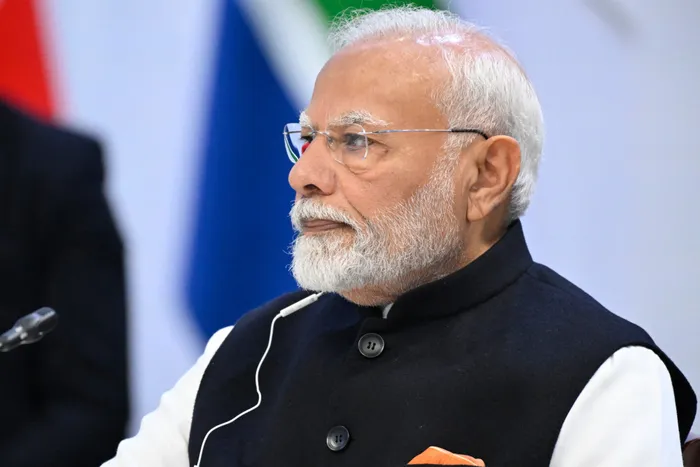
Indian Prime Minister Narendra Modi said that the recent agreement agreements signed with the Philippines have elevated the level of bilateral discussions between the two nations to a strategic partnership.
Image: AFP
Recent bilateral talks between India and the Philippines have seen the strengthening of the relationship between the two countries and includes Visa-free travel, direct flights, technological cooperation and cultural exchanges that are set to complement the new defense-heavy alignment, aiming to turn a once-distant relationship into a broad-based alliance.
The visit of Philippine President Ferdinand Marcos Jr. to India, between August 4 and 8, marked a historic milestone in the relations between the two countries and which was the first such state visit since 2007.
On August 5, India and the Philippines formally elevated their ties to a Strategic Partnership, backed by a comprehensive bilateral Plan of Action that will proceed from 2025 to 2029, signed in New Delhi.
India and the Philippines established bilateral diplomatic relations in 1949, but for many years, their partnership remained largely symbolic and has best been described as anchored in mutual goodwill but unfulfilled potential.
The defense and security partnership as part of the Strategic Partnership is now the central pillar of the New Delhi-Manila alignment with the nations agreeing on the sale of BrahMos supersonic cruise missile systems to the Philippines-making it the first country to procure these missiles from India.
India’s BrahMos cruise missile system, the first batch delivered in April 2024 and the second in April 2025, now empowers the Philippine Marine Corps with advanced coastal defense capability. This was India’s first major defense export.
On the eve of Marcos’ visit, the Indian and Philippine navies conducted their first-ever joint exercises in the South China Sea on August 3-4, with drills being held inside the Philippine Exclusive Economic Zone.
India deployed three warships – INS Delhi, INS Shakti, and INS Kiltan – while the Philippines fielded BRP Miguel Malvar and the BRP Jose Rizal.
The area remains a source of tension for the Philippines, marked by confrontations and territorial disputes over resources and strategic waters.
Philippines President Ferdinand Marcos Jr. said India has become the fifth strategic strategic partner for his country as he described the talks as ‘broadening and deepening of our 75-year-old bilateral relationship, the possibilities represented by the strong upward trajectory of our two economies, as it does to the growing alignment of our interests and views on the challenges and imperatives of our time’.
“We agreed to continue leveling up our collaboration in defense and security.
“We expressed satisfaction over the rapid pace of the Philippines’ ongoing defense modernisation, and expanding capabilities and footprint of India’s indigenous defense industry as a partner in this undertaking, exemplified by our BrahMos project,” Marcos Jr. said.
He said both countries want to build upon the existing relationship but to also explore new opportunities that have arisen in the past few years because of the new technologies and the changing state of the global economy and the geopolitics.
Indian Prime Minister Narendra Modi highlighted that the agreements during the visit had elevated the level of bilateral discussions between the two nations to a strategic partnership.
“A comprehensive action plan is also being made to transform this partnership into results. Our bilateral trade is rising constantly, and it has crossed $3 billion. To further strengthen it, our priority is to complete the India-Asean Free Trade Review as soon as possible,” Modi said.
He said India and the Philippines were “committed to peace, security, prosperity and a rules-based order in the Indo-Pacific region”.
Bilateral trade between the two countries reached 3.5 billion US dollars in 2023/24 and recently, defence, security and maritime cooperation between the two countries has expanded. Indian companies are present in the Philippines and are operating in various sectors like IT, healthcare, pharmaceuticals, chemicals, textiles, infrastructure, automobiles, and agriculture.
* Dr Govender is an academic and a keen observer of issues related to international relations.
** The views expressed do not necessarily reflect the views of IOL or Independent Media.